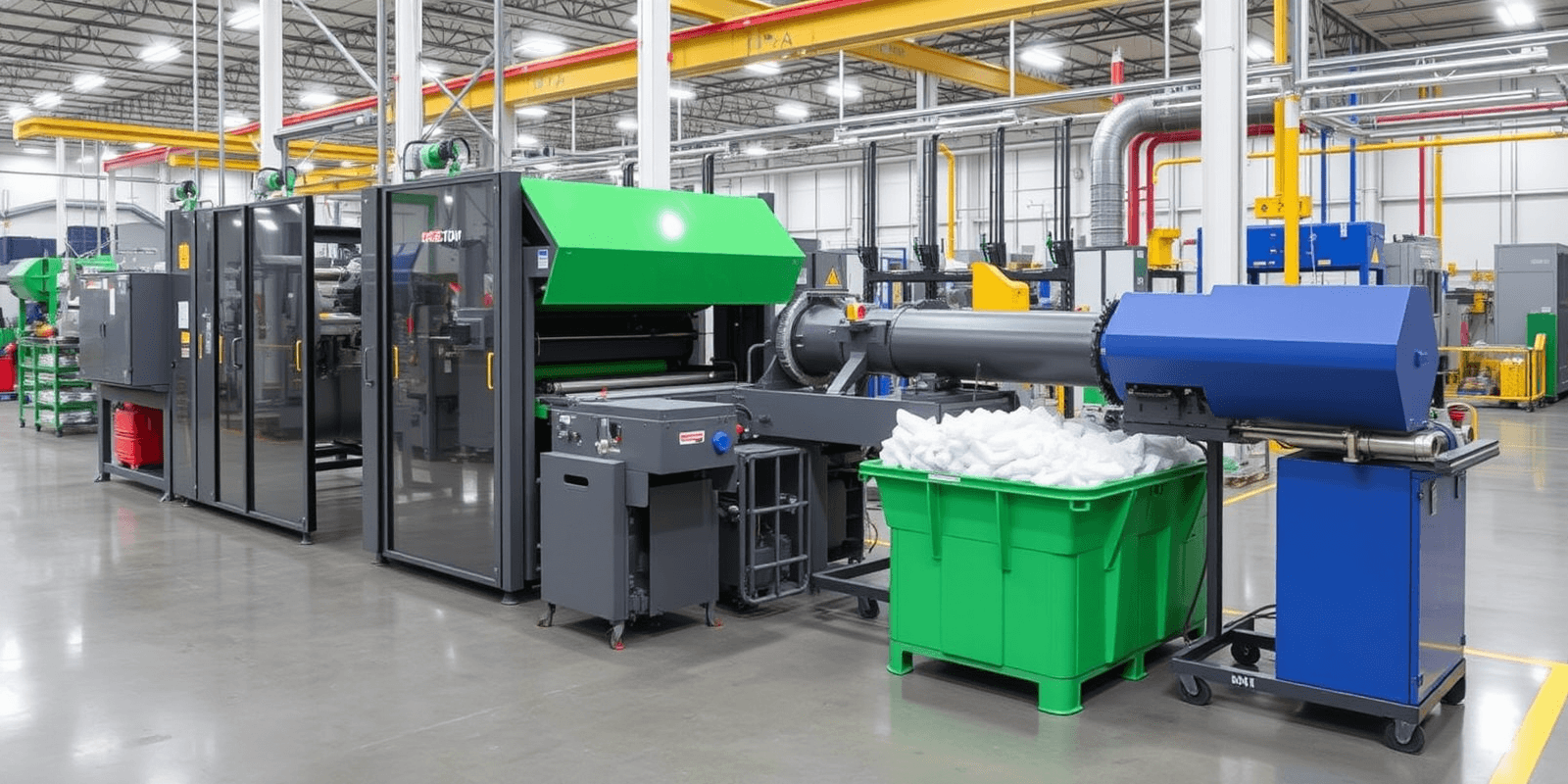The Future of Manufacturing: Integrating Plastic Recycling Equipment into Production Lines
As the world grapples with the environmental impact of plastic waste, the integration of plastic recycling equipment for production lines is becoming an increasingly important solution. This shift not only addresses environmental concerns but also presents significant economic opportunities. In this article, we will explore the emerging technologies in plastic recycling equipment, their integration into production lines, and the implications for both the environment and the economy. We will also discuss the potential challenges in adoption and how they can be overcome.
Emerging Technologies in Plastic Recycling Equipment
The field of plastic recycling has seen remarkable advancements in recent years, driven by the need to reduce waste and create a more sustainable manufacturing process. Some of the key emerging technologies include:
- Advanced Sorting Systems: These systems use advanced sensors, artificial intelligence, and machine learning algorithms to sort plastics more efficiently and accurately. For example, optical sorting technologies can identify and separate different types of plastics based on their chemical composition, color, and shape.
- Chemical Recycling: Unlike traditional mechanical recycling, which involves melting and reprocessing plastics, chemical recycling breaks down plastics into their basic monomers. This allows for the creation of high-quality recycled materials that can be used in a wide range of applications. Companies like Pyrowave are leading the way in this technology.
- Biodegradable Plastics: The development of biodegradable plastics, such as polylactic acid (PLA) and polyhydroxyalkanoates (PHA), is another significant advancement. These materials can be broken down by natural processes, reducing the long-term environmental impact of plastic waste.
Integration into Production Lines
Integrating plastic recycling equipment for production lines is a critical step in creating a circular economy. Here’s how it can be done:
- Modular Design: Many modern recycling systems are designed to be modular, allowing them to be easily integrated into existing production lines. This reduces the need for extensive modifications and downtime, making the transition smoother and more cost-effective.
- Automation and Robotics: Automation and robotics play a crucial role in the integration of recycling equipment. They can handle the sorting, processing, and feeding of recycled materials into the production line, ensuring a seamless and efficient operation.
- Data Analytics and Monitoring: Advanced data analytics and monitoring systems can track the performance of the recycling equipment and the quality of the recycled materials. This information can be used to optimize the process, improve efficiency, and ensure that the recycled materials meet the required standards.
Implications for the Environment and the Economy
The integration of plastic recycling equipment for production lines has significant implications for both the environment and the economy:
Environmental Benefits
- Reduction in Landfill Waste: By recycling plastics, the amount of waste sent to landfills is significantly reduced, helping to mitigate the environmental impact of plastic pollution.
- Conservation of Resources: Recycling plastics conserves natural resources, such as oil and gas, which are used in the production of virgin plastics. This helps to reduce the carbon footprint of the manufacturing process.
- Lower Emissions: The production of recycled plastics typically requires less energy and produces fewer greenhouse gas emissions compared to the production of virgin plastics.
Economic Benefits
- Cost Savings: Using recycled plastics can be more cost-effective than using virgin plastics, especially as the price of raw materials continues to rise. Additionally, the integration of recycling equipment can lead to operational efficiencies and reduced waste disposal costs.
- Job Creation: The growth of the recycling industry creates new job opportunities in areas such as sorting, processing, and equipment maintenance. This can have a positive impact on local economies.
- Market Opportunities: As consumers become more environmentally conscious, there is a growing demand for products made from recycled materials. Companies that integrate recycling equipment into their production lines can tap into this market and gain a competitive advantage.
Challenges in Adoption
While the benefits of integrating plastic recycling equipment for production lines are clear, there are several challenges that need to be addressed:
- Initial Investment Costs: The upfront cost of purchasing and installing recycling equipment can be a barrier for many companies, especially small and medium-sized enterprises (SMEs). However, government incentives and financing options can help to offset these costs.
- Technical Expertise: The operation and maintenance of recycling equipment require specialized knowledge and skills. Companies may need to invest in training or hire additional staff to ensure the equipment is used effectively.
- Quality Control: Ensuring the quality of recycled materials is consistent and meets the required standards can be challenging. Advanced monitoring and testing systems are essential to maintain the integrity of the production process.
- Regulatory Compliance: Different regions have varying regulations regarding the use of recycled materials. Companies need to stay informed about these regulations and ensure that their operations comply with all relevant laws and standards.
Conclusion
The integration of plastic recycling equipment for production lines is a crucial step towards a more sustainable and circular economy. Emerging technologies, such as advanced sorting systems, chemical recycling, and biodegradable plastics, are transforming the way we think about plastic waste. By embracing these innovations, manufacturers can reduce their environmental impact, save costs, and create new economic opportunities. While there are challenges to overcome, the benefits of adopting these technologies far outweigh the costs. As the world continues to prioritize sustainability, the future of manufacturing will undoubtedly be shaped by the integration of plastic recycling equipment into production lines.
References
